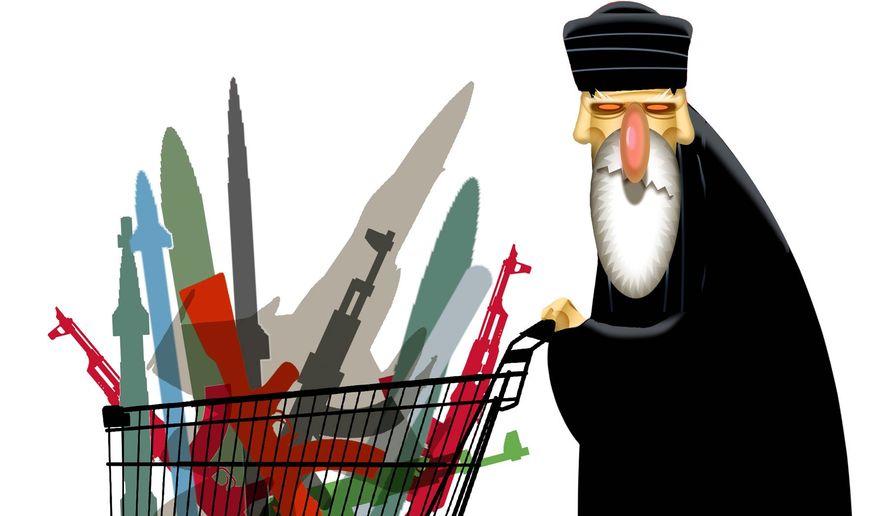OPINION:
President Obama has made his “deal” with Iran. Most of the attention related to the deal has focused on the nuclear restrictions within the deal. That focus, however, ignores an important aspect of the deal for Iran. The Obama-Iran deal allows Iran to solidify its conventional military gains in the Middle East — a victory for which they are willing to delay their nuclear ambitions.
A decade ago, the Middle East was far more stable than it is today. The United States had a major presence in the region. As a result, the borders of the countries of the Middle East were quite stable.
Today, there is quite a different story. Iraq is a war zone with fungible borders. The same can be said of Yemen and Syria. All three countries may still appear on the map, but full control within their historic borders does not belong to their governments. Of course, we cannot forget that the Islamic State, or ISIS, has militarily created its own state within the region at the expense of some of those other states — and the ISIS state borders also are ill-defined and changing.
All of which brings us to Iran. Since its “revolution” in the 1970s, Iran’s dictators have desired to be the dominant power in the Middle East and to project power and terror beyond it. Unlike the United States, which changes those in power every two or four years and which results in short-term policies, Iran’s true power brokers are around for as long as their health will permit.
Consistent with their dictators’ long-term hold on power, their leaders think long-term. Iran does not worry whether their policy today will effect an election in two years. Their goal is hegemony over the Middle East for decades not elections.
While the borders of the Middle East were relatively secure, Iran’s ambition to be the dominant power in the Middle East was perhaps best served by obtaining a nuclear weapon. There is no doubt it has labored extensively to get it. The very quest increased its power vis-a-vis its neighbors.
Of course, all along Iran has supported proxies throughout the region. It worked to destabilize governments it rivaled and threatened Israel wherever and whenever it could. Iran has long supported Syria and has significant influence over Syria. Iran also supports Hezbollah and Hamas to further Iran’s ambitions. The last few years, however, have been different.
Today, Iran is on the battlefield in the Middle East in ways it likely couldn’t imagine just a few years ago. The regime has troops in Iraq, its long-time foe. Iran’s potential success in Iraq could include enormous influence on future Iraqi governments, if not de facto control of territory.
The same can be said of Iran’s strategy and activities in Yemen. It has sent troops and aid to support rebels allied with Iran. Again, going forward, Iran’s potential success in Yemen includes influence over any future government at a minimum.
Obviously, if Iran is playing the game of Risk with the rest of the Middle East, it is certainly on the rise — but that comes at a cost — literally. Iran must spend an enormous amount of money to prosecute those more conventional war efforts.
Just as obviously, the sanction regime that Iran has been subject to over the last decade reduced its income. For Iran to maintain and consolidate its military gains in the region, it needs money — big money — and now. Without that money, Iran could lose the ground gains it has made in the last couple years.
So Iran made a simple choice: Make a deal with the West that may delay their nuclear ambitions but that gives them the money they need to help win on the ground in the Middle East. Five years ago, Iran didn’t have that choice. Now, thanks to well over $100 billion from the Obama-Iran deal, in just the first year, they will.
That’s why the deal is great for Iran — and a bad deal for everyone else. An ascendant Iran on the ground in the Middle East threatens all of its neighbors in ways well beyond the threat of a nuclear weapon. Each country will now have to enter a conventional arms race in addition to considering acquiring nuclear weapons.
That, of course, means the Middle East will be less safe going forward. The same came be said for the world.
• Thomas G. Del Beccaro is a candidate for the U.S. Senate seat in California in 2016. His new book is “The Divided Era: How We Got Here and the Keys to America’s Reconciliation” (Greenleaf Book Group Press, 2015).




Please read our comment policy before commenting.